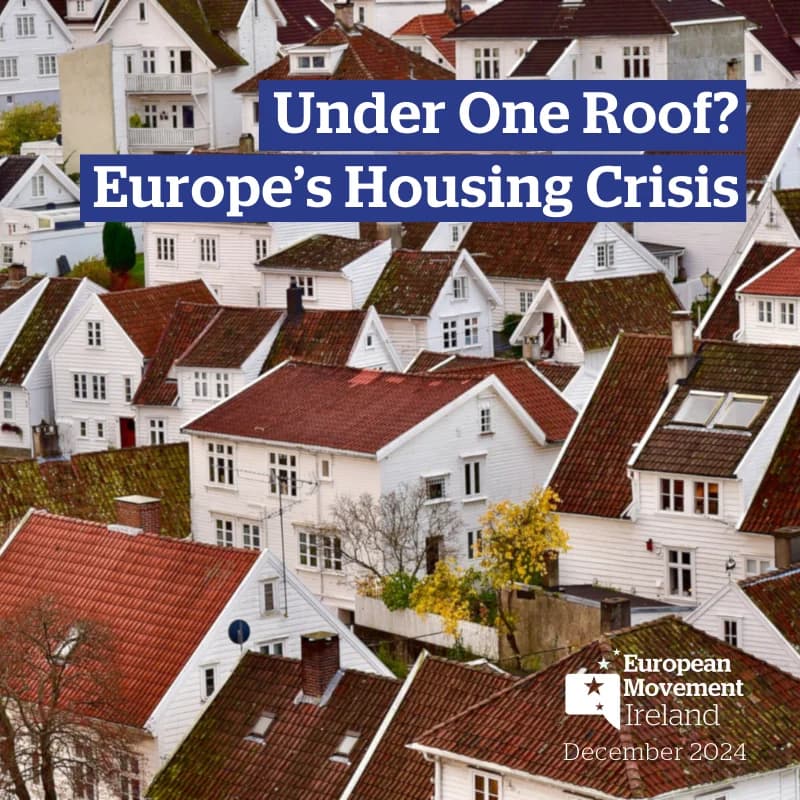AI-Generated Summary
Just the Facts - Under One Roof? Europe’s Housing Crisis is a resource published by European Movement Ireland, largely informed by Eurofound’s 2023 report on housing affordability and adequacy in Europe. It explores the housing crisis faced by various EU Member States, with a particular focus on Ireland's situation as a case study.
Context of Ireland's Housing Crisis
In the recent Irish General Election, the primary concern for voters was housing and homelessness. Polls indicated that 44% of voters prioritized housing, significantly higher than the EU average of 10%. The Central Statistics Office reported an 8.6% increase in residential property prices in Ireland between June 2023 and June 2024, with median dwelling prices reaching €337,000. Such increases have led to a situation where 56.2% of Irish adults aged 25-29 still live with their parents, a stark contrast to lower rates in other EU countries like Denmark and Sweden.
Housing Typology in Ireland
Ireland is unique within the EU in terms of housing types. In 2023, 89.7% of people lived in houses, compared to an EU average of 51.7%. This contrasts with countries like Spain, where a majority reside in flats. The Irish housing market has been characterized by rising prices since the economic downturn in 2008, with many areas now exceeding the peak prices of the Celtic Tiger years.
General Trends in the EU
The housing crisis affects various demographics across Europe, from homeowners to renters, and urban to rural residents. Housing costs have escalated dramatically since 2016, often outpacing disposable income. While homeownership is more common in the EU, with 70% of people owning their homes, young adults and low-income groups face significant barriers to entering the housing market. The rate of young people renting has increased, and the age at which they leave their parents' homes has risen from 26 to 28 in the last decade.
Main Housing Problems Identified
Eurofound identifies four main housing problems impacting the EU: exclusion, insecurity, housing costs, and inadequacy. Exclusion primarily affects homeless individuals and young adults who cannot afford independent housing. Insecurity exists for those who have housing but are at risk of losing it, particularly among private renters.
Housing Costs and Affordability
Rising housing costs are a pervasive issue across the EU, with many individuals spending over 40% of their income on housing. This financial strain is especially acute for low-income households with children. The adequacy of housing varies widely among Member States, impacting the quality of life for residents.
The Role of EU Policies
While the EU has no direct authority over national housing policies, its recommendations and funding initiatives indirectly influence housing conditions. Upcoming priorities include establishing an EU Commissioner for Energy and Housing and proposing a "European Affordable Housing Plan." These initiatives aim to address the housing crisis through improved coordination and investment.
National Level Solutions
On the national level, addressing homelessness through Housing-First schemes has proven effective in some countries, such as Finland. Preventing evictions and providing monetary support for renters can also alleviate some of the pressures associated with housing costs. Furthermore, increasing the supply of affordable and adequate housing remains a critical requirement for addressing the crisis effectively.
